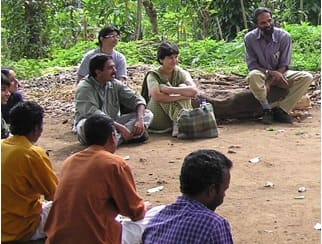
Free, Prior and Informed Consent (FPIC)
Being able to say “yes” or “no” to any action or proposal that will impact a community’s lands, waters, bio-cultural diversity or rights is usually comprised under the expression ‘Free, Prior and Informed Consent’– FPIC for short. If FPIC is ensured, a community can make decisions free from coercion, threats, or deceit; prior to any action that anticipates the decision; and based on all relevant information about the various options available, in accessible languages and formats. The decision-making processes should be determined by the community and provide ample time to reach broad consensus. And communities should have access to legal and technical assistance if requested.[1]
While consent must be verified before any activities start, FPIC should not be a ‘one-off’ event or a matter of ticking a box. Consent should be maintained over time, including by having processes in place to check-in or monitor that the agreement is being upheld as expected, and that a community can raise new concerns or grievances if unexpected developments become apparent.
FPIC is an integral element of self-determination and a collective right of indigenous peoples— recognized in UNDRIP and other international legal instruments. It is also a widely-agreed-upon ethical best practice with regard to non-indigenous communities. Unfortunately, the FPIC standard is rarely honoured in practice. State domestic laws and policies often resort to consultation and accommodation practices that fall short of actual consent. In other words, consent is treated as an aspirational goal rather than a prerequisite for state-approved interventions on indigenous territories.
This should not detract communities to ask for FPIC and strive to get it respected, possibly with the help of others! (see the Self-strengthening Guidance ‘Act with others‘)
Key reference:
Hill, Lillywhite and Simon, 2010.
[1] See Hill, Lillywhite and Simon, 2010.